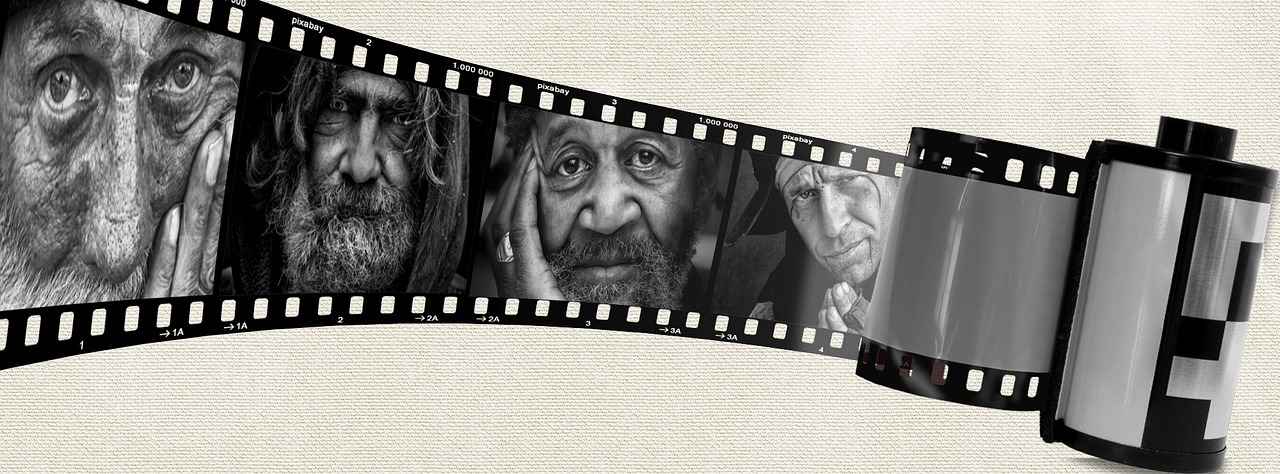This article presents a carefully curated collection of 123 movie names spanning various genres, offering insights into their themes, significance, and the reasons they deserve a spot on your watchlist. Each selection is chosen not just for entertainment value but also for the impact they have had on audiences and the film industry alike.
Classic films have left an indelible mark on the history of cinema. Movies like Citizen Kane and The Godfather are not just entertaining; they defined genres and set standards for storytelling and cinematography. These films explore complex themes such as power, morality, and the human condition. They are essential viewing for anyone wishing to understand the evolution of filmmaking.
Action movies are known for their adrenaline-pumping excitement and thrilling plots. Films like Die Hard and Mad Max: Fury Road are must-watch titles that showcase groundbreaking stunts and compelling narratives. These films often blend intense action with character development, making them more than just visual spectacles.
Family films resonate with audiences of all ages, delivering messages of love, unity, and adventure. Movies such as The Lion King and Finding Nemo are perfect examples of how storytelling can bring families together. They often tackle important life lessons, making them both entertaining and educational.
Documentaries educate and inspire by presenting real-world issues. Must-see documentaries like 13th and My Octopus Teacher challenge perceptions and spark meaningful conversations. They delve into topics that range from social justice to environmental concerns, making them essential viewing for those who wish to engage with the world around them.
Romantic films capture the essence of love and relationships. Classics like Pride and Prejudice and The Notebook beautifully portray emotional journeys that resonate deeply with viewers. These films explore the complexities of love, making them timeless favorites.
Horror movies are designed to evoke fear and suspense. Films such as The Shining and Get Out have terrified audiences while becoming classics in the genre. They often explore psychological themes and societal issues, making them more than just scary stories.
Biographical films tell the stories of remarkable individuals. Movies like A Beautiful Mind and Hidden Figures celebrate the lives and achievements of influential figures, inspiring viewers through their struggles and triumphs. These films often highlight important historical contexts, making them both educational and motivational.
Science fiction films push the boundaries of imagination and technology. Titles like Blade Runner and Inception have shaped the genre, captivating audiences with their innovative storytelling and visual effects. They often explore philosophical questions about existence and the future, making them thought-provoking as well as entertaining.
Animated films are not just for kids; they often carry profound messages. Movies like Spirited Away and Up entertain and inspire viewers of all ages, exploring themes of friendship, adventure, and self-discovery. They remind us of the importance of imagination and creativity.
Comedy films provide laughter and joy. Classics like Some Like It Hot and The Big Lebowski have remained beloved over the years, showcasing timeless humor that transcends generations. These films often reflect societal norms, providing both entertainment and social commentary.
International cinema offers diverse storytelling and cultural insights. Films such as Parasite and Amélie provide unique perspectives and highlight global narratives, enriching our understanding of different cultures and experiences. They challenge viewers to think beyond their own borders.
Independent films often challenge conventional storytelling. Titles like Moonlight and Lady Bird have made significant contributions to the film industry and culture, showcasing unique voices and perspectives. They encourage creativity and innovation, proving that impactful cinema can come from outside the mainstream.

Classic Movies That Shaped Cinema
Classic films have played a pivotal role in shaping the landscape of cinema, leaving an indelible mark on the industry and influencing generations of filmmakers. These iconic movies not only defined genres but also set the standards for storytelling, cinematography, and character development. In this section, we will explore some of the most significant classic films that have contributed to the evolution of cinema, highlighting their themes, cultural impact, and why they remain essential viewing today.
- The Birth of a Nation (1915) – Often regarded as one of the first feature-length films, this silent epic directed by D.W. Griffith revolutionized the narrative structure of cinema. Despite its controversial themes, it showcased innovative techniques such as close-ups and cross-cutting.
- Casablanca (1942) – A timeless romance set against the backdrop of World War II, this film has become synonymous with classic Hollywood. Its memorable quotes and complex characters continue to resonate with audiences, showcasing the power of love and sacrifice.
- Citizen Kane (1941) – Frequently cited as the greatest film of all time, Orson Welles’ masterpiece broke new ground in storytelling and cinematography. Its non-linear narrative and deep focus technique have influenced countless filmmakers.
- Gone with the Wind (1939) – This epic historical romance remains a cultural touchstone, known for its sweeping narrative and strong character arcs. Its portrayal of the American South during the Civil War era has sparked discussions about race and representation in cinema.
- Psycho (1960) – Alfred Hitchcock’s psychological thriller changed the horror genre forever. Its shocking plot twists and innovative use of music and editing have set a standard for suspense films that followed.
These films are just a few examples of how classic cinema has shaped the industry. Each of these movies introduced new techniques and narratives that challenged audiences and inspired future filmmakers. They serve not only as entertainment but also as cultural artifacts that reflect the times in which they were made.
Moreover, classic films often tackle universal themes such as love, sacrifice, and the human condition, making them relevant across generations. They invite viewers to reflect on their own experiences while providing insights into different eras and cultures. The impact of these films extends beyond their release; they continue to be studied in film schools, analyzed in academic settings, and celebrated in retrospectives.
In conclusion, classic films are essential to understanding the evolution of cinema. They represent a rich tapestry of storytelling that has influenced filmmakers and captivated audiences for decades. Whether through groundbreaking techniques or enduring narratives, these films have left an unforgettable legacy that continues to inspire and entertain.

Must-Watch Action Movies
Action movies have captivated audiences for decades, offering a unique blend of adrenaline-pumping excitement and thrilling plots. These films are known for their intense sequences, breathtaking stunts, and engaging narratives that keep viewers on the edge of their seats. In this section, we will explore some of the most essential action films that every enthusiast should experience, highlighting their groundbreaking stunts and storytelling that have defined the genre.
From classic blockbusters to modern masterpieces, action films have evolved significantly. Here are some must-watch titles:
- Die Hard (1988) – This iconic film set the standard for action movies with its gripping plot and memorable one-liners. Bruce Willis stars as John McClane, a New York cop who battles terrorists in a Los Angeles skyscraper.
- The Dark Knight (2008) – Christopher Nolan’s masterpiece not only redefined the superhero genre but also delivered a compelling narrative with Heath Ledger’s unforgettable performance as the Joker.
- Mad Max: Fury Road (2015) – A visual spectacle that combines stunning action sequences with a strong feminist message, this film is a relentless chase through a post-apocalyptic wasteland.
- Gladiator (2000) – This epic historical drama features Russell Crowe as a wronged general seeking vengeance in ancient Rome, blending action with a profound story of betrayal and redemption.
- John Wick (2014) – Known for its stylish choreography and world-building, this film follows a retired hitman seeking revenge after the death of his beloved dog, showcasing a unique underworld of assassins.
Each of these films has made a significant impact on the genre, showcasing innovative stunts, compelling characters, and engaging storylines. The success of these movies can be attributed to their ability to resonate with audiences, not just through action, but also through emotional depth and character development.
Moreover, the action genre is not limited to just big-budget productions. Independent films like The Raid (2011) have also garnered critical acclaim for their raw intensity and masterful choreography. This Indonesian film features a SWAT team trapped in a high-rise building and must fight their way through a ruthless gang, setting a new standard for martial arts cinema.
In conclusion, the action genre continues to thrive, appealing to a wide range of audiences. Whether through high-octane car chases, epic battles, or emotional narratives, action films remain a vital part of cinematic history. For enthusiasts and casual viewers alike, these must-watch titles are essential for understanding the evolution and significance of action cinema.

Heartwarming Family Films
Family films have a unique ability to resonate with audiences of all ages, delivering messages of love, unity, and adventure. These films serve as a bridge between generations, fostering connections and shared experiences among family members. In this section, we explore a selection of heartwarming movies that not only entertain but also impart valuable life lessons, making them perfect for family viewing.
One of the most cherished aspects of family films is their universal appeal. They often feature relatable characters and scenarios that mirror the dynamics of real family life. Whether it’s a story about overcoming challenges, the importance of friendship, or the joy of togetherness, these films encapsulate themes that resonate deeply with viewers. Here are some notable examples:
- The Lion King: This animated classic tells the story of Simba, a young lion who must learn about responsibility and bravery while navigating the complexities of family relationships. Its stunning visuals and memorable soundtrack make it a timeless favorite.
- Finding Nemo: A tale of a father’s relentless quest to find his son, this film beautifully illustrates the lengths one will go for family. Its vibrant underwater world and heartfelt moments make it engaging for children and adults alike.
- Paddington: This delightful film about a lovable bear who finds a new home in London emphasizes kindness, acceptance, and the idea that family can be found in the most unexpected places.
- Up: A story about adventure and the bonds of friendship, “Up” showcases how love can transcend loss, making it a poignant choice for family movie night.
These films not only entertain but also serve as a catalyst for important discussions among family members. After watching, families can engage in conversations about the themes presented, allowing for deeper connections and understanding. For instance, discussing the challenges faced by characters can lead to meaningful insights into personal experiences and values.
Moreover, family films often incorporate humor and light-hearted moments that keep audiences entertained while subtly conveying important messages. The blend of laughter and emotion makes these films memorable and impactful. For instance, the comedic antics in “Home Alone” juxtaposed with the underlying themes of family and belonging create a rich viewing experience.
In addition to traditional narratives, family films also explore diverse cultures and backgrounds, offering viewers a chance to learn about different lifestyles and traditions. Movies like “Coco” celebrate cultural heritage while emphasizing the significance of family bonds, making them both educational and entertaining.
As technology evolves, so does the landscape of family films. Streaming platforms now offer a plethora of options that cater to various tastes and preferences. Families can now access a wide range of heartwarming films from different cultures and genres, enriching their viewing experience and broadening their horizons.
In conclusion, heartwarming family films are an essential part of cinema that resonates with audiences of all ages. They bring families together, foster understanding, and impart valuable life lessons. Whether through animated adventures or live-action tales, these films remind us of the importance of love, unity, and the joys of family life.

Thought-Provoking Documentaries
Documentaries serve as a powerful medium for educating and inspiring audiences by bringing real-world issues to the forefront. They not only entertain but also challenge our perceptions, provoke thought, and spark meaningful conversations. In this section, we will explore a selection of must-see documentaries that delve into various pressing topics, each offering unique insights and perspectives.
Documentaries play a crucial role in society by highlighting underreported issues and providing a platform for marginalized voices. They encourage viewers to engage with complex subjects, fostering a deeper understanding of the world around us. By presenting factual information and personal stories, documentaries can inspire action and promote social change.
- 13th – Directed by Ava DuVernay, this documentary explores the intersection of race, justice, and mass incarceration in the United States, revealing the systemic inequalities that persist today.
- My Octopus Teacher – This heartwarming documentary chronicles the bond between a filmmaker and an octopus, offering profound insights into nature and our connection to the environment.
- Won’t You Be My Neighbor? – A touching tribute to Fred Rogers, this film examines the impact of kindness and compassion in children’s programming and society at large.
- The Social Dilemma – This eye-opening documentary dives into the dangerous impact of social media on our lives, exploring how technology can manipulate behavior and influence mental health.
- Food, Inc. – A critical look at the American food industry, this documentary exposes the practices that affect our health and environment, urging viewers to reconsider their food choices.
Documentaries have a unique ability to foster discussions around critical issues. By presenting real stories and facts, they encourage viewers to reflect on their own beliefs and values. For instance, after watching 13th, many viewers engage in conversations about racial inequality and justice reform, often leading to community activism and awareness campaigns.
Moreover, documentaries can serve as educational tools in classrooms, prompting students to analyze and debate the subjects presented. This engagement not only enhances critical thinking skills but also promotes empathy as students learn about diverse experiences and perspectives.
Many documentaries have successfully catalyzed social movements. For example, The Inconvenient Truth, featuring Al Gore, played a significant role in raising awareness about climate change, leading to increased public interest and activism in environmental issues. Similarly, Blackfish brought attention to the ethical concerns surrounding marine parks, resulting in significant changes in public policy and consumer behavior.
As viewers witness the struggles and triumphs depicted in these films, they are often moved to take action, whether through volunteering, donating, or simply spreading the word. This ripple effect illustrates the profound impact documentaries can have on society.
In conclusion, thought-provoking documentaries are more than just films; they are essential tools for education and advocacy. By highlighting real-world issues and encouraging dialogue, they inspire individuals to reflect, engage, and ultimately contribute to positive change in their communities and beyond.

Romantic Movies That Tug at Your Heartstrings
Romantic films are a timeless genre that beautifully encapsulates the essence of love, connection, and emotional journeys. These movies often explore the complexities of relationships, showcasing the highs and lows that come with falling in love. Whether it’s a tale of first love, heart-wrenching loss, or enduring partnerships, romantic films resonate with audiences across generations. Below, we delve into a selection of romantic movies that are sure to tug at your heartstrings.
Romantic movies have a unique ability to evoke powerful emotions. They often feature relatable characters whose experiences mirror our own, allowing viewers to connect deeply with their stories. The themes of love, sacrifice, and hope are universal, making these films appealing to a wide audience. Additionally, the combination of beautiful cinematography, stirring soundtracks, and compelling narratives creates an immersive experience that leaves a lasting impression.
- The Notebook – This classic film tells the story of Noah and Allie, whose love transcends time and circumstance.
- Pride and Prejudice – A timeless tale of love and misunderstandings set in the early 19th century.
- La La Land – A modern musical that explores the balance between love and ambition in the city of dreams.
- Before Sunrise – A captivating story of two strangers who share a night of deep connection in Vienna.
- 500 Days of Summer – A non-linear narrative that examines the complexities of modern relationships.
Romantic films often serve as a mirror to real-life relationships, portraying the joys and struggles that couples face. They highlight the importance of communication, trust, and vulnerability in love. Many films tackle issues such as long-distance relationships, societal pressures, and personal growth, providing audiences with relatable scenarios. This reflection allows viewers to gain insights into their own relationships, fostering discussions about love and partnership.
The popularity of romantic films transcends cultural boundaries. Love is a fundamental human experience, and stories of romance resonate universally. Different cultures may depict love in unique ways, showcasing diverse traditions and values. This variety enriches the genre, allowing audiences to explore love from different perspectives. Furthermore, the emotional depth and relatable themes make these films appealing to people from all walks of life.
Music plays a crucial role in enhancing the emotional impact of romantic films. A well-curated soundtrack can elevate key moments, making them more memorable. Songs often encapsulate the film’s themes, resonating with the audience long after the credits roll. Iconic tracks from films like The Notebook or La La Land have become synonymous with love, further solidifying the connection between music and romance in cinema.
Romantic films come in various subgenres, each offering a unique take on love. From romantic comedies that provide laughter and light-heartedness to intense dramas that explore heartache and loss, there is something for everyone. Romantic thrillers add an element of suspense, while romantic fantasies transport viewers to magical worlds where love conquers all. This diversity ensures that the genre remains fresh and engaging, appealing to a broad audience.
In conclusion, romantic movies are an essential part of cinema that continue to touch hearts and inspire audiences. Their ability to portray the complexities of love and relationships makes them a beloved genre for many. Whether you’re in the mood for a light-hearted comedy or a poignant drama, there’s a romantic film out there that will resonate with your emotions.

Thrilling Horror Films to Watch at Night
Horror films have a unique ability to tap into our primal fears, creating an exhilarating experience that keeps viewers on the edge of their seats. The genre has evolved over the years, giving rise to numerous iconic films that have not only terrified audiences but also left a lasting impact on cinema. In this section, we will explore some of the most thrilling horror films that have become classics, captivating viewers with their suspenseful storytelling and chilling visuals.
- The Shining – Directed by Stanley Kubrick, this psychological horror film follows Jack Torrance, who becomes the winter caretaker of the isolated Overlook Hotel. As he descends into madness, the film masterfully builds tension, leaving audiences questioning reality.
- Hereditary – A modern classic, this film delves into family trauma and the supernatural. Its unsettling atmosphere and shocking moments create a haunting experience that lingers long after the credits roll.
- Get Out – Jordan Peele’s directorial debut combines social commentary with horror, as it explores racism through a suspenseful narrative. The film’s clever twists and thought-provoking themes have made it a standout in contemporary horror.
- It Follows – This film introduces a unique premise where a supernatural entity relentlessly pursues its victims. Its retro aesthetic and chilling soundtrack contribute to an atmosphere of dread that is both innovative and terrifying.
- Halloween – A seminal slasher film that introduced the iconic character Michael Myers, it set the standard for the genre. With its suspenseful pacing and memorable score, it continues to influence horror filmmakers today.
These films exemplify the diversity of horror, showcasing various themes and styles that contribute to the genre’s rich tapestry. From psychological thrillers to supernatural scares, each film offers a unique experience that resonates with audiences. The effectiveness of horror films often lies in their ability to evoke deep-seated fears, whether it be the fear of the unknown, familial ties, or societal issues.
As we delve deeper into the horror genre, it is essential to recognize the impact these films have on popular culture. They not only entertain but also spark conversations about fear and humanity. The thrilling horror films mentioned above have become cultural touchstones, inspiring countless discussions and analyses among fans and critics alike.
In conclusion, horror films remain a vital part of cinema, continually evolving to reflect societal fears and anxieties. Whether you are a seasoned horror aficionado or a casual viewer, these films provide a thrilling escape into the unknown, making them perfect for a night of fright.

Inspiring Biographical Films
Biographical films, often referred to as biopics, are a unique genre that brings to life the stories of remarkable individuals. These films not only entertain but also educate audiences about the lives and achievements of influential figures who have shaped history. Through the lens of cinema, we gain insights into their struggles, triumphs, and the legacies they leave behind. Below, we explore some of the most inspiring biographical films that celebrate these extraordinary lives.
- The Pursuit of Happyness – This film tells the true story of Chris Gardner, a man who overcomes homelessness while raising his son and pursuing a career in finance. It is a powerful narrative about perseverance and determination.
- A Beautiful Mind – Based on the life of John Nash, a brilliant mathematician who battles schizophrenia, this film highlights the importance of love, support, and the human spirit in overcoming adversity.
- Hidden Figures – This inspiring tale focuses on the contributions of three African-American women mathematicians at NASA during the space race. Their story is a testament to resilience and breaking barriers in a male-dominated field.
- Frida – A biopic about the iconic Mexican artist Frida Kahlo, this film explores her tumultuous life, her art, and her enduring spirit in the face of personal and physical challenges.
- Selma – This film chronicles the historic march from Selma to Montgomery led by Dr. Martin Luther King Jr. It emphasizes the struggle for civil rights and the power of peaceful protest.
These films not only highlight the achievements of their subjects but also serve as a source of inspiration for viewers. They remind us that even in the face of overwhelming odds, it is possible to overcome challenges and make a significant impact on the world.
Moreover, biographical films often delve into the personal lives of these figures, showcasing their vulnerabilities and the sacrifices they made. This humanizes them and allows audiences to connect on a deeper level. For instance, in The Imitation Game, the story of Alan Turing, a mathematician who played a pivotal role in breaking the Enigma code during World War II, is portrayed alongside his struggles with societal acceptance and personal identity.
In addition to being entertaining, biopics can also spark important conversations about the historical context of their subjects. Films like 12 Years a Slave and The Butler provide critical insights into the struggles faced by African Americans throughout history, prompting discussions about race, equality, and justice.
In conclusion, inspiring biographical films are more than just stories; they are powerful narratives that celebrate the human spirit. They encourage us to reflect on our own lives and the impact we can have on the world around us. Whether through triumphs or tragedies, these films remind us that every life has a story worth telling.

Groundbreaking Science Fiction Movies
Science fiction films are a remarkable blend of imagination and technology, often exploring themes that challenge our understanding of reality and the future. Over the decades, this genre has produced numerous films that not only entertain but also provoke thought and inspire innovation. Below, we delve into some of the most influential sci-fi movies that have shaped the genre and captivated audiences worldwide.
- Metropolis (1927) – Directed by Fritz Lang, this silent film is a pioneering work of science fiction cinema. Its stunning visuals and themes of class struggle and technological advancement have influenced countless filmmakers.
- 2001: A Space Odyssey (1968) – Stanley Kubrick’s masterpiece is renowned for its groundbreaking special effects and profound narrative. It explores themes of evolution, artificial intelligence, and humanity’s place in the universe.
- Blade Runner (1982) – Ridley Scott’s dystopian vision of the future raises questions about identity and what it means to be human. Its visual style and themes of artificial intelligence have left a lasting impact on the genre.
- The Matrix (1999) – This film revolutionized action and sci-fi with its innovative use of special effects and complex narrative. It challenges viewers to consider the nature of reality and perception.
- Inception (2010) – Directed by Christopher Nolan, this mind-bending film explores the concept of dreams within dreams. Its intricate plot and stunning visuals have made it a modern classic.
These films are just a glimpse into the vast universe of science fiction cinema. Each has contributed to the genre in unique ways, pushing the boundaries of storytelling and technology.
Science fiction serves as a mirror reflecting our hopes, fears, and aspirations about the future. It allows audiences to explore complex ideas such as artificial intelligence, space exploration, and time travel, all while engaging in thrilling narratives. The genre continues to evolve, with filmmakers constantly experimenting with new technologies and storytelling techniques.
One of the most significant aspects of groundbreaking science fiction films is their ability to inspire real-world technological advancements. For instance, the depiction of virtual reality in films like The Matrix has sparked interest in developing similar technologies. Moreover, the ethical dilemmas presented in films like Blade Runner have prompted discussions about the implications of artificial intelligence in our society.
In addition to their entertainment value, these films often serve as cautionary tales, warning us about potential futures shaped by unchecked technological growth and societal issues. They encourage viewers to reflect on the direction humanity is heading and the choices we make.
As we continue to explore the universe of science fiction, it’s clear that these films will remain a vital part of our cultural landscape, inspiring future generations of filmmakers and audiences alike. From classic films that laid the foundation to contemporary masterpieces pushing the envelope, the realm of science fiction is boundless, and its impact is profound.

Engaging Animated Films for All Ages
Animated films have long been perceived as the domain of children, but this notion is rapidly changing. Today, animated movies are crafted with layers of storytelling that resonate with audiences of all ages. They often weave in profound messages about life, love, and the human experience, making them not just entertaining, but also enlightening. Below, we explore a selection of engaging animated films that are sure to inspire and entertain viewers, regardless of their age.
Animated films possess a unique ability to blend visual artistry with storytelling, creating immersive worlds that captivate audiences. These films often tackle complex themes such as friendship, resilience, and the importance of community, making them accessible and relatable to viewers of all ages. The animation style can range from traditional hand-drawn techniques to cutting-edge CGI, each bringing its own charm to the narrative.
- The Lion King – A tale of responsibility and the circle of life, this classic resonates with both children and adults through its memorable characters and songs.
- Inside Out – This film explores the intricacies of emotions and mental health, providing valuable insights into how feelings shape our experiences.
- Up – A heartwarming adventure that teaches the importance of dreams, friendship, and letting go of the past.
- Spirited Away – A visually stunning masterpiece from Studio Ghibli that delves into themes of identity and environmentalism.
- Coco – Celebrating family and cultural heritage, this film emphasizes the significance of remembering loved ones and the power of music.
One of the key reasons animated films have a broad appeal is their ability to combine humor with deeper emotional narratives. Adults often appreciate the subtle references and life lessons embedded within the storylines, while children enjoy the vibrant characters and whimsical adventures. This dual-layered approach ensures that animated films remain relevant and cherished across generations.
Animated movies often spark discussions about important topics. For instance, films like Zootopia address issues of prejudice and acceptance, encouraging viewers to reflect on their own biases and societal norms. Such narratives foster an environment where families can engage in meaningful conversations about complex subjects, making them invaluable for both entertainment and education.
In summary, animated films are not just for the young; they are a treasure trove of wisdom and inspiration for viewers of all ages. By exploring themes that resonate universally, these films have the power to entertain, educate, and inspire, making them essential viewing for anyone looking to enrich their cinematic experience.

Classic Comedies That Stand the Test of Time
Comedy films have an extraordinary ability to uplift our spirits, providing a much-needed escape from the everyday grind. They often serve as a mirror to society, reflecting our quirks, relationships, and the absurdities of life with humor that resonates across generations. In this exploration, we take a closer look at classic comedies that have not only entertained audiences but also shaped the genre itself.
- Some Like It Hot (1959) – Directed by Billy Wilder, this film is a masterclass in comedic timing and wit. Starring Marilyn Monroe, Tony Curtis, and Jack Lemmon, it tells the story of two musicians who disguise themselves as women to escape from mobsters. Its clever script and memorable performances have made it a timeless favorite.
- The Apartment (1960) – Another gem by Billy Wilder, this film masterfully blends comedy with poignant themes of love and loneliness. Jack Lemmon shines as a man who lends his apartment to his superiors for their extramarital affairs, leading to unexpected complications.
- Monty Python and the Holy Grail (1975) – This British classic redefined absurdist humor. The film parodies the legend of King Arthur and his knights, delivering quotable lines and unforgettable scenes that continue to inspire comedians today.
- Airplane! (1980) – A landmark in parody films, “Airplane!” is known for its rapid-fire jokes and visual gags. Its influence can be seen in countless comedies that followed, proving that silliness can be a powerful tool in storytelling.
- The Princess Bride (1987) – A unique blend of romance, adventure, and humor, this film has garnered a cult following. Its quotable dialogue and memorable characters make it a beloved classic that appeals to audiences of all ages.
These films exemplify the essence of comedy, showcasing how humor can transcend time and cultural barriers. They remind us that laughter is a universal language, capable of bringing people together. The enduring popularity of these classics speaks to their exceptional writing, direction, and performances, ensuring they remain relevant in today’s cinematic landscape.
In addition to their entertainment value, many classic comedies also offer social commentary, cleverly addressing issues of their time while remaining accessible and enjoyable. For instance, “Some Like It Hot” tackles themes of gender identity and societal norms, making it a progressive film for its era. Similarly, “The Apartment” provides insight into workplace dynamics and personal sacrifice, wrapped in a comedic narrative that resonates with modern audiences.
As we revisit these classic comedies, it is essential to appreciate their contributions to film history. They not only set the standard for future comedic works but also paved the way for diverse storytelling within the genre. The ability of these films to evoke laughter while prompting reflection is what truly makes them stand the test of time.
In conclusion, classic comedies are more than just a source of laughter; they are cultural touchstones that continue to influence filmmakers and audiences alike. Whether you are a lifelong fan or a newcomer to these films, their charm and wit are sure to leave a lasting impression.

International Films That Broaden Perspectives
International cinema serves as a vibrant tapestry, weaving together diverse stories and cultural insights from around the globe. These films not only entertain but also challenge our perceptions, allowing audiences to immerse themselves in experiences that differ from their own. In this section, we will explore a variety of international films that provide unique perspectives and highlight global narratives, emphasizing the importance of understanding different cultures through the art of storytelling.
- Exploring Cultural Nuances: International films often delve into the intricacies of local traditions, societal norms, and everyday life, offering viewers a glimpse into cultures that may be vastly different from their own. For instance, films like “Parasite” from South Korea and “Amour” from France explore themes of class disparity and aging, respectively, allowing audiences to engage with these critical issues on a personal level.
- Fostering Empathy and Understanding: By presenting stories from various cultural perspectives, international cinema fosters a sense of empathy. Films such as “City of God” from Brazil and “The Intouchables” from France highlight human resilience and the bonds of friendship, encouraging viewers to connect emotionally with characters from different backgrounds.
- Challenging Stereotypes: Many international films actively challenge stereotypes and preconceived notions about different cultures. For example, “Crouching Tiger, Hidden Dragon” showcases the beauty of Chinese martial arts while also addressing themes of honor and female empowerment, breaking away from Western portrayals of Asian cultures.
- Innovative Storytelling Techniques: International filmmakers often employ unique storytelling techniques that differ from mainstream Hollywood narratives. Films like “The Secret in Their Eyes” from Argentina and “A Fantastic Woman” from Chile utilize non-linear narratives and rich character development to create compelling stories that resonate on multiple levels.
Moreover, international cinema often highlights pressing global issues, such as immigration, war, and human rights. Documentaries like “13th” and narrative films like “The Kite Runner” bring attention to these critical themes, prompting discussions that extend beyond the screen. By engaging with these films, audiences can gain a broader understanding of the complexities faced by individuals in different parts of the world.
In addition to their cultural significance, international films frequently receive critical acclaim, winning prestigious awards at film festivals such as Cannes and the Oscars. This recognition not only elevates the films themselves but also brings attention to the filmmakers and actors who work tirelessly to share their stories with the world.
In conclusion, exploring international cinema is an enriching experience that broadens our perspectives and deepens our understanding of the human experience. By engaging with films from different cultures, we can appreciate the diversity of storytelling and the universal themes that connect us all. Whether through heartwarming narratives or thought-provoking documentaries, international films continue to play a crucial role in shaping our worldview.

Groundbreaking Independent Films
Independent films have long been a vital component of the cinematic landscape, often challenging conventional storytelling and offering unique perspectives that mainstream cinema may overlook. These films not only provide a platform for emerging filmmakers but also explore complex themes and narratives that resonate deeply with audiences. In this section, we delve into a selection of groundbreaking indie films that have made significant contributions to both the film industry and culture.
Independent films typically operate outside the traditional studio system, allowing for greater creative freedom. This independence enables filmmakers to tell stories that reflect diverse experiences and often tackle social issues head-on. They frequently experiment with narrative structures, visual styles, and character development, resulting in innovative storytelling that captivates audiences.
- “The Blair Witch Project” (1999) – A pioneering found-footage horror film that redefined the genre and demonstrated the power of grassroots marketing.
- “Moonlight” (2016) – This Academy Award-winning film explores themes of identity and sexuality through the life of a young Black man, showcasing the beauty of authentic storytelling.
- “Lady Bird” (2017) – A coming-of-age story that highlights the complexities of mother-daughter relationships, resonating with a broad audience and earning critical acclaim.
- “Juno” (2007) – A quirky yet heartfelt film that addresses teen pregnancy with humor and sensitivity, proving that indie films can tackle serious topics with grace.
Independent films often serve as a testing ground for new ideas and techniques that later influence mainstream cinema. For instance, the success of indie films has encouraged studios to invest in more diverse narratives and unconventional storytelling methods. As audiences increasingly seek authenticity and originality, the impact of indie films on Hollywood continues to grow.
Beyond their artistic contributions, independent films play a crucial role in shaping cultural conversations. They often address underrepresented voices and highlight social issues that resonate with audiences on a personal level. Films like “Fruitvale Station” and “Parasite” not only entertain but also spark vital discussions about race, class, and systemic inequality.
Watching independent films is an opportunity to experience cinema that pushes boundaries and challenges norms. These films often provide a fresh perspective and can lead to a deeper understanding of various cultures and experiences. Whether you are looking for thought-provoking narratives or simply want to support emerging talent, indie films offer something for everyone.
In conclusion, the world of independent cinema is a rich tapestry of creativity and innovation. By exploring these groundbreaking films, viewers can gain insights into the diverse landscape of storytelling and appreciate the art of filmmaking in its most authentic form.
Frequently Asked Questions
- What are some must-watch classic movies?
Classic movies like Casablanca and Gone with the Wind have shaped the film industry. They offer timeless stories that resonate with audiences even today.
- Why are action movies so popular?
Action movies provide a thrilling escape from reality, filled with adrenaline-pumping scenes and heroics. Films like Die Hard and Mad Max showcase incredible stunts that keep viewers on the edge of their seats!
- Can family films be enjoyable for adults?
Absolutely! Family films like Finding Nemo and The Lion King often contain deeper themes and humor that appeal to both kids and adults, making them perfect for family movie nights.
- What makes a documentary worth watching?
Documentaries like 13th and My Octopus Teacher present real-world issues and stories that can challenge your perspectives and spark meaningful conversations.
- Why do people love romantic movies?
Romantic movies, such as The Notebook and Pride and Prejudice, explore the complexities of love and relationships, often leaving viewers with a warm, fuzzy feeling.
- What are some iconic horror films to watch?
If you’re looking for a scare, films like The Exorcist and Get Out have become classics, known for their ability to evoke fear and suspense in audiences.
- What is the significance of biographical films?
Biographical films like Selma and The Theory of Everything celebrate the lives of remarkable individuals, inspiring viewers through their stories of perseverance and achievement.
- How do sci-fi movies influence our imagination?
Sci-fi films like Inception and Blade Runner push the boundaries of what’s possible, often sparking conversations about technology and the future.
- Are animated films only for children?
No way! Animated films like Up and Spirited Away carry profound messages and can be enjoyed by audiences of all ages.
- What makes independent films unique?
Independent films often tell unconventional stories and explore themes that mainstream films might overlook, offering fresh perspectives on various issues.














